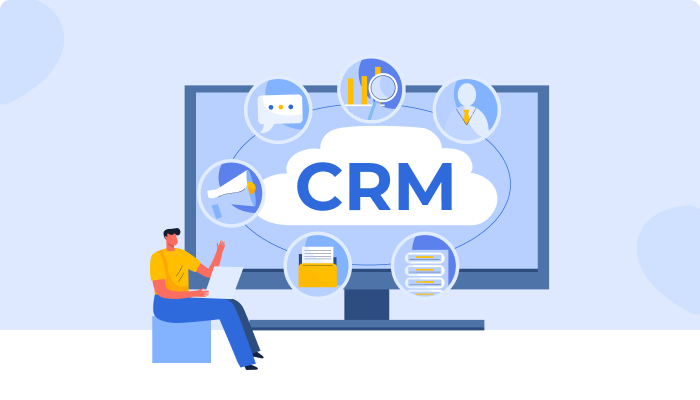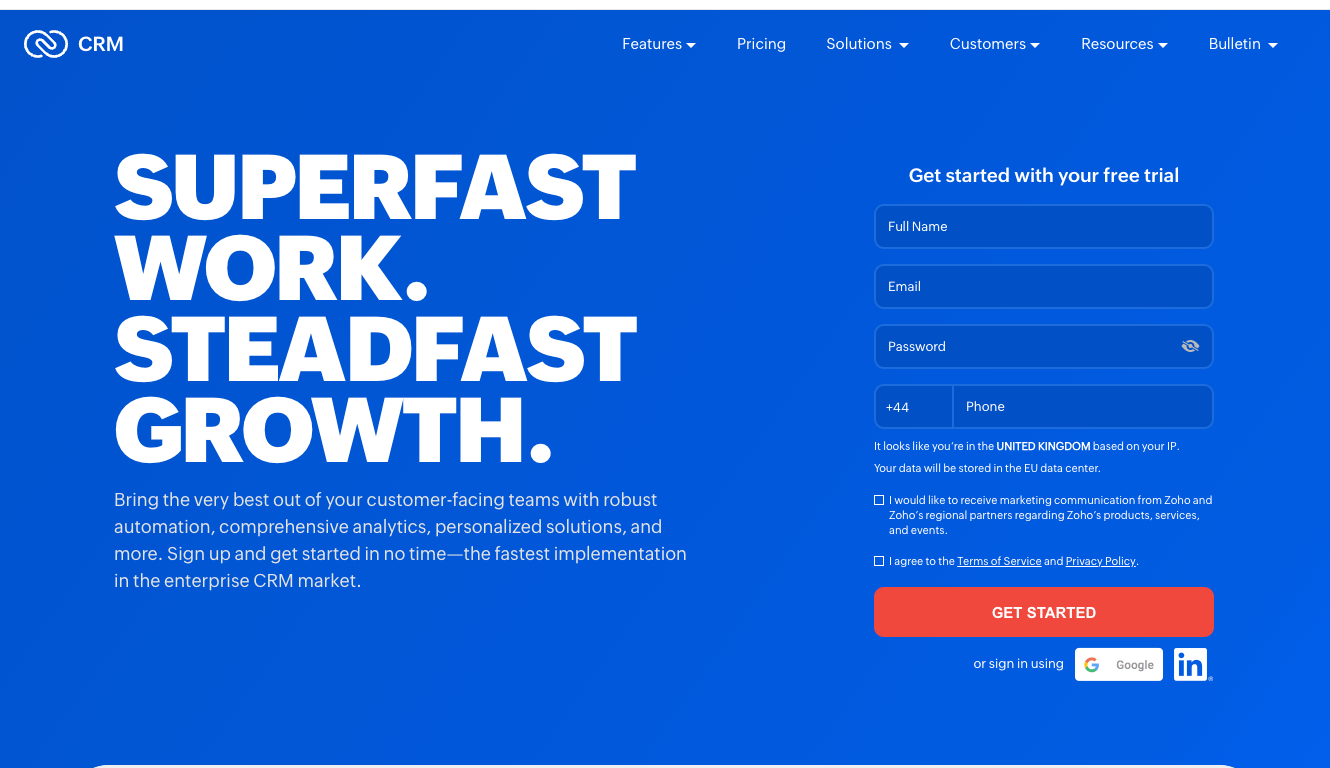
Navigating the Freelance Jungle: Why You Need a CRM
So, you’re a freelancer. Congratulations! You’ve embraced the freedom, the flexibility, and the occasional rollercoaster ride that comes with calling your own shots. You’re the boss, the marketer, the salesperson, the accountant, and, well, everything else. In this dynamic landscape, managing your client relationships is the cornerstone of sustainable success. That’s where a Customer Relationship Management (CRM) system steps in – not just as a tool, but as your strategic ally.
Think of it this way: your clients are the lifeblood of your freelance business. Nurturing those relationships isn’t just about sending invoices and delivering projects; it’s about understanding their needs, anticipating their desires, and providing exceptional service. A CRM helps you do all of that, and more.
Without a CRM, you’re likely juggling a chaotic mix of spreadsheets, email threads, and mental notes. Leads get lost, follow-ups are missed, and opportunities slip through the cracks. It’s a recipe for stress and lost revenue. A good CRM streamlines your workflow, centralizes your information, and empowers you to deliver a consistently stellar client experience.
What is a CRM, and Why Does a Freelancer Need One?
At its core, a CRM is a software solution designed to manage your interactions with current and potential clients. It acts as a central hub for all client-related information, allowing you to:
- Organize contact details: Store names, contact information, social media profiles, and other relevant data in one place.
- Track communication: Log emails, calls, meetings, and other interactions with clients.
- Manage leads: Capture, qualify, and nurture leads throughout the sales process.
- Automate tasks: Automate repetitive tasks like sending follow-up emails, scheduling appointments, and generating invoices.
- Analyze data: Gain insights into your sales performance, client behavior, and overall business health.
For freelancers, the benefits are even more pronounced. You’re often wearing multiple hats, and a CRM can help you:
- Save time: Automate tasks and streamline your workflow, freeing up your time for more important activities like client work and business development.
- Improve organization: Keep all your client information in one place, eliminating the need for scattered spreadsheets and email threads.
- Enhance communication: Stay on top of client interactions and ensure that no opportunities are missed.
- Boost sales: Identify and nurture leads, track sales progress, and close more deals.
- Increase client satisfaction: Provide personalized service and build stronger relationships with your clients.
Key Features to Look for in a CRM for Freelancers
Not all CRMs are created equal. As a freelancer, you have specific needs and a limited budget. Here are some essential features to consider when choosing a CRM:
Contact Management
This is the foundation of any good CRM. Make sure the system allows you to easily store and manage contact information, including:
- Name, company, and job title
- Contact details (email, phone, address)
- Social media profiles
- Notes and other relevant information
Lead Management
A good CRM should help you track and nurture leads, from initial contact to conversion. Look for features like:
- Lead capture forms
- Lead scoring
- Pipeline management
- Automated follow-up sequences
Task Management and Automation
Automation is your best friend as a freelancer. Look for a CRM that can automate repetitive tasks, such as:
- Sending follow-up emails
- Scheduling appointments
- Generating invoices
- Sending reminders
Communication Tracking
Keep track of all your interactions with clients, including:
- Email logs
- Call logs
- Meeting notes
Reporting and Analytics
Gain valuable insights into your sales performance and client behavior. Look for features like:
- Sales reports
- Pipeline reports
- Client activity reports
Integrations
Choose a CRM that integrates with the other tools you use, such as:
- Email marketing platforms
- Project management software
- Accounting software
Mobile Accessibility
As a freelancer, you’re often on the go. Make sure your CRM has a mobile app or a responsive web interface so you can access your data from anywhere.
Pricing and Scalability
Consider your budget and the size of your business. Choose a CRM that offers a pricing plan that meets your needs and can scale as your business grows.
Top CRM Systems for Freelancers: A Detailed Comparison
Now, let’s dive into some of the best CRM options for freelancers. We’ll compare their features, pricing, and ease of use to help you find the perfect fit.
1. HubSpot CRM
Overview: HubSpot CRM is a popular choice for freelancers and small businesses due to its user-friendly interface and generous free plan. It’s a comprehensive CRM that offers a wide range of features, including contact management, lead tracking, email marketing, and sales automation.
Key Features:
- Free forever plan: Offers a robust set of features for free, making it an excellent option for freelancers on a budget.
- Contact management: Automatically logs all interactions with contacts, including emails, calls, and website visits.
- Lead tracking: Tracks leads through the sales pipeline and provides insights into their behavior.
- Email marketing: Allows you to send targeted email campaigns and track their performance.
- Sales automation: Automates repetitive tasks, such as sending follow-up emails and scheduling appointments.
- Integrations: Integrates with a wide range of other tools, including Gmail, Outlook, and Slack.
Pros:
- Free plan is very generous and feature-rich.
- User-friendly interface makes it easy to learn and use.
- Excellent integrations with other tools.
- Strong marketing automation capabilities.
Cons:
- The free plan has limitations on the number of contacts and emails you can send.
- Some advanced features are only available in paid plans.
Pricing: Offers a free plan, as well as paid plans starting at $45 per month.
Ideal for: Freelancers who want a free, all-in-one CRM with strong marketing automation capabilities.
2. Zoho CRM
Overview: Zoho CRM is another popular option for freelancers, known for its affordability and extensive feature set. It offers a wide range of features, including contact management, lead tracking, sales automation, and analytics.
Key Features:
- Free plan: Offers a free plan for up to three users.
- Contact management: Manages all your contacts and their information.
- Lead management: Tracks leads through the sales pipeline and provides insights into their behavior.
- Sales automation: Automates repetitive tasks, such as sending follow-up emails and scheduling appointments.
- Workflow automation: Automates complex business processes.
- Integrations: Integrates with a wide range of other tools, including Google Workspace, Microsoft Office 365, and social media platforms.
Pros:
- Affordable pricing plans.
- Extensive feature set.
- Strong automation capabilities.
- Excellent integrations with other tools.
Cons:
- The user interface can be a bit overwhelming for beginners.
- Some advanced features are only available in paid plans.
Pricing: Offers a free plan for up to three users, as well as paid plans starting at $14 per user per month.
Ideal for: Freelancers who want an affordable and feature-rich CRM with strong automation capabilities.
3. Pipedrive
Overview: Pipedrive is a sales-focused CRM that is designed for simplicity and ease of use. It’s a great option for freelancers who want a CRM that is focused on helping them close deals.
Key Features:
- Visual pipeline: Provides a clear visual representation of your sales pipeline, making it easy to track deals.
- Contact management: Manages all your contacts and their information.
- Lead tracking: Tracks leads through the sales pipeline and provides insights into their behavior.
- Sales automation: Automates repetitive tasks, such as sending follow-up emails and scheduling appointments.
- Integrations: Integrates with a wide range of other tools, including Gmail, Outlook, and Zapier.
Pros:
- User-friendly interface makes it easy to learn and use.
- Visual pipeline makes it easy to track deals.
- Strong sales automation capabilities.
Cons:
- Less feature-rich than some other CRMs.
- The free trial is limited.
Pricing: Offers a free trial, as well as paid plans starting at $12.50 per user per month.
Ideal for: Freelancers who want a sales-focused CRM that is easy to use and helps them close deals.
4. Freshsales
Overview: Freshsales is a sales CRM that is designed to be intuitive and easy to use. It offers a wide range of features, including contact management, lead tracking, sales automation, and phone integration.
Key Features:
- Contact management: Manages all your contacts and their information.
- Lead management: Tracks leads through the sales pipeline and provides insights into their behavior.
- Sales automation: Automates repetitive tasks, such as sending follow-up emails and scheduling appointments.
- Built-in phone: Allows you to make and receive calls directly from the CRM.
- Integrations: Integrates with a wide range of other tools, including Google Workspace, Microsoft Office 365, and Zapier.
Pros:
- User-friendly interface.
- Built-in phone feature.
- Strong sales automation capabilities.
Cons:
- The free plan is limited.
- Some advanced features are only available in paid plans.
Pricing: Offers a free plan, as well as paid plans starting at $15 per user per month.
Ideal for: Freelancers who want a sales-focused CRM with a built-in phone feature.
5. Agile CRM
Overview: Agile CRM is a comprehensive CRM that offers a wide range of features, including contact management, lead tracking, sales automation, marketing automation, and project management.
Key Features:
- Contact management: Manages all your contacts and their information.
- Lead management: Tracks leads through the sales pipeline and provides insights into their behavior.
- Sales automation: Automates repetitive tasks, such as sending follow-up emails and scheduling appointments.
- Marketing automation: Automates marketing tasks, such as sending email campaigns and creating landing pages.
- Project management: Allows you to manage your projects directly from the CRM.
- Integrations: Integrates with a wide range of other tools, including Google Workspace, Microsoft Office 365, and Zapier.
Pros:
- Comprehensive feature set.
- Strong marketing automation capabilities.
- Project management features.
Cons:
- The user interface can be a bit overwhelming.
- Some advanced features are only available in paid plans.
Pricing: Offers a free plan for up to 10 users, as well as paid plans starting at $9.99 per user per month.
Ideal for: Freelancers who want a comprehensive CRM with strong marketing automation and project management capabilities.
How to Choose the Right CRM for Your Freelance Business
Choosing the right CRM can feel overwhelming, but it doesn’t have to be. Here’s a step-by-step guide to help you make the right decision:
- Assess your needs: What are your biggest pain points? What tasks do you want to automate? What features are most important to you? Make a list of your must-haves and nice-to-haves.
- Set a budget: How much are you willing to spend on a CRM? Consider the different pricing plans offered by each provider.
- Research your options: Read reviews, compare features, and explore the different CRM options available. The above section is a good starting point.
- Try free trials: Most CRM providers offer free trials. Take advantage of these trials to test out the different systems and see which one best meets your needs.
- Consider integrations: Make sure the CRM integrates with the other tools you use, such as your email marketing platform, project management software, and accounting software.
- Prioritize ease of use: Choose a CRM that is easy to learn and use. You don’t want to spend hours trying to figure out how to use the system.
- Think about scalability: Choose a CRM that can grow with your business. As your business grows, you’ll likely need more features and functionality.
Tips for Maximizing Your CRM’s Effectiveness
Once you’ve chosen a CRM, it’s time to put it to work. Here are some tips for maximizing its effectiveness:
- Enter all your data: The more data you enter into your CRM, the more valuable it will be. Make sure to enter all your contact information, lead information, and sales data.
- Use the automation features: Automate repetitive tasks to save time and improve efficiency.
- Track your progress: Use the reporting and analytics features to track your sales performance and client behavior.
- Stay organized: Keep your CRM organized by using tags, categories, and other organizational tools.
- Train your team: If you have any team members, make sure they are properly trained on how to use the CRM.
- Regularly review and update your data: Keep your data up-to-date to ensure accuracy.
- Integrate with other tools: Connect your CRM with other tools you use, such as your email marketing platform and project management software.
Beyond the Basics: Advanced CRM Strategies for Freelancers
Once you’ve mastered the fundamentals of CRM, you can explore more advanced strategies to further enhance your freelance business:
- Segmentation: Segment your contacts based on various criteria (e.g., industry, project type, budget) to personalize your communication and tailor your marketing efforts.
- Workflow automation: Design complex workflows to automate entire processes, such as onboarding new clients or following up on proposals.
- Lead scoring: Implement lead scoring to prioritize leads based on their engagement and likelihood to convert.
- Personalized email campaigns: Use CRM data to create highly personalized email campaigns that resonate with your audience.
- Client portals: Consider using a CRM with client portal capabilities to provide clients with a secure space to access project information, documents, and invoices.
- Feedback collection: Integrate feedback forms and surveys to gather valuable insights from your clients and identify areas for improvement.
The Future of Freelancing and CRM
The freelance landscape is constantly evolving, and CRM technology is keeping pace. Here are some trends to watch:
- AI-powered CRM: Artificial intelligence is being integrated into CRMs to automate tasks, provide insights, and personalize interactions.
- Mobile-first design: CRMs are increasingly focusing on mobile accessibility to cater to the on-the-go nature of freelancing.
- Integration with emerging technologies: CRMs are integrating with new technologies, such as blockchain and virtual reality, to offer even more advanced features.
Conclusion: Embrace the Power of CRM
In the dynamic world of freelancing, a CRM is no longer a luxury; it’s a necessity. It’s the key to streamlining your workflow, nurturing client relationships, and ultimately, achieving sustainable success. By choosing the right CRM and implementing effective strategies, you can unlock your full potential as a freelancer and build a thriving business. Don’t wait – take the first step towards a more organized, efficient, and successful freelance career today. The best CRM for small freelancers is the one that fits your specific needs and helps you thrive.


